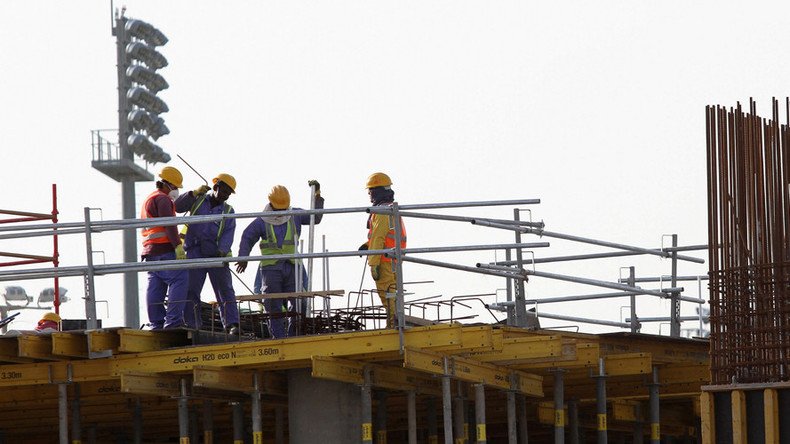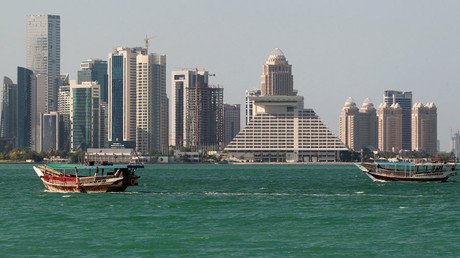Qatar's migrant workers bear brunt of Arab blockade

The Arab embargo has had an adverse impact on Qatar's foreign workers, who are needed to get the country ready for the 2022 FIFA World Cup in Doha.
Saudi Arabia, Egypt, Bahrain and the United Arab Emirates (UAE) blocked Qatar's border and imposed an embargo after accusing the country of supporting terrorism. As a result, Qatar has been forced to spend more on chartering ships and airplanes to import everything from food to construction materials for the football World Cup.
The supply shortages have made everything more expensive in the country, hitting the poorest segment of the population the hardest, workers from places like India and Nepal.
Ninety percent of Qatar’s 2.7 million population are migrants. Non-Arab foreigners make up the vast majority of Qatar's population; Indians are the largest community, numbering 650,000 in 2017. In 2004, there were fewer than 750,000 migrants in the country.
Migrant workers are particularly vulnerable because of the kafala labor sponsorship system, where laborers are reliant on their employers for visas, accommodation, and permission to enter or exit the country.
Human Rights Watch has reported that migrants employed by Qatari farms in Saudi Arabia are stuck in the country, as their bosses fled to Qatar in June. South Asian laborers were stranded without wages, food or water.
While Qatar is rich enough to live through years of sanctions because of its gas resources, the embargo may result in worse conditions for migrants.
"The impact could reverberate to South Asia, the Philippines and East Africa where migrants' families depend heavily on remittances," Gulf labor researcher Mustafa Qadri told Reuters.
Other workers have complained. For example, a crane operator from Bangladesh explained his employer said wages could be delayed, as the company is running out of steel, previously imported from the UAE.
With reports of thousands of migrants leaving the country, last Wednesday, Qatar announced it would cancel more visas for foreign workers.












